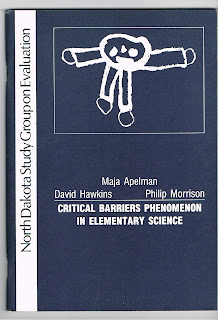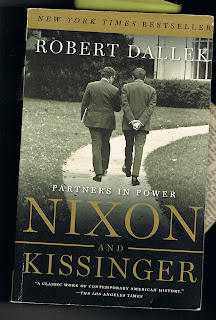As we prepare for another home construction project, many pieces of furniture, display cabinets, and bookcases have been moved..........in doing so, I uncovered many treasures from the past...............some hidden in tins, of course, and I saw books I have had and treasured over the years...............so, here, I have scanned some book-covers of books I have read and reread....................cos they spoke to me...
I recommend the reader to take a look at some, if not all, of them........oh, and a few education articles which I consider to be empathetic with my views about how we should teach our children.....whatever their challenges.
Let me start with this that I found in the bottom of a cardboard box - my earliest memory of reading .........the Beano and the Dandy, weekly comics:
 |
| Then, when I was around 8 or 9, I shifted to The Eagle....its heroes were astronauts. I thought Dan Dare was THE superhero!! |
 |
| My favorite childhood books - read to me by Mr. Jones in class, then by me when I took them out of the library. |
 |
| My reference book through Grammar School! This one I bought from another kid. I have another I bought in 1953......has my school number (3064) inside the cover, and my signature. |
The big Fella......I was a great fan during the 60s. Thought he was the class act in the Fab Four.
|
  |
| Always had these books with me, especially after my first trip to the US in the mid 1960s. Gave me a good picture of the American way of doing things. |

 |
| This was made into a BBC series which was so good! I LOVE Thomas Hardy's work. A brilliant writer. As good as Dickens in my book! |
 |
| Loved this! |
 |
| DAVID'S BEST ESSAYS ON EDUCATION..........BRILLIANT MIND, BRILLIANT WRITER, WONDERFUL FRIEND AND COLLEAGUE... |
 |
| Said much of what needed to be heard about the realities of teaching........a long time ago and even today.... |
 |
| Great observer, writer......and critique of education |

 |
| The BEST, most readable, most informing, gardening book ever! |
 |
| Read this before I worked at Wounded Knee |
 |
| Couldn't put this book down......and it always brought tears to my eyes. |
 |
| TONY KALLET TALKED AND TALKED ABOUT THIS BOOK.....1970 |
 |
| A MUST READ for those interested in what was happening in UK schools in the 1960s. The film I appeared in was made in Mary Brown's school. |
  |
| I'm a great admirer of Roland Barth's work. Met him in the UK in the 1960s. Nice, unassuming guy. Very readable, very useable, very well written |
 |
| GREAT essays.......and Maja's are especially good! |
 |
| Tony's BEST papers, brought together by Bill Browse and Mary Brown, in memory of Tony who passed away much too young |
 |
| Great ideas in this book.............. |
 |
| A MUST READ for every parent..........especially those who don't have time to take their kids hiking in the wild countryside... |
 |
| Great story teller...........Angela's Ashes was too much for me, I'm afraid.........but this I couldn't put down! |
 |
| I have read and read about the ABOMB project..... |
 |
| Add caption |
 |
| David was the official Historian of the Los Alamos Bomb Project.......he wrote Project Y |
 |
| Great detail about Robert O |
 |
| And his brother, FRANK |
 |
| One of my favorite broadcasters.... |
 |
| and my favorite! |
 |
| A must read if you lived through the Nixon presidency |
Lived through the time of Richard Nixon, as did countless others.........interesting to see a presidency unravel as Richard Nixon's did.
|
 |
| interesting guy, Mr. Kissinger |
 |
| Brilliant writer........such incredible detail, draws you in........love to hear him speak, too. |
EDUCATION (En. Ed., Science, mainly) ARTICLES.
let me start with
let me start with
The night I received my Master's degree.........my friend, mentor, light of my life, David Hawkins, then teaching in Leicester University, showed me a copy of American writer, J. Featherstone's great article on primary education.
Sure stirred David and Tony Kallet up.
I have the New Republic copy to this day........and the photo, taken, of course, by TK.
|
Great observations and commentary on the education practice then in place in Leicestershire, Oxfordshire and the West Riding of Yorkshire, by the American, J. Featherstone.......
The movement for reform in America's schools attracted increasing momentum through the 1960s, chiefly thanks to a number of writers like Joseph Featherstone, John Holt and Herbert Kohl, who dramatized areas of 'bad' practice as well as various attempts at reform in the classroom.
"Integrated day," "informal school," and "open classroom" became as familiar as the jargon growing out of the work of John Dewey and the Progressive Movement.
Unfortunately, it is felt that the Progressives left behind little more in practice than jargon. Advocates of reform along the lines of informal schooling fear that without painstaking attention to new experiments in education, their insights and progress will fall similarly by the wayside.
It is especially in this light that the contributions of Joseph Featherstone to The New Republic, have been exceptionally important. With numerous articles and with his Reports on British infant school education, Featherstone has tried to keep reformers' attention focused on improvements in actual practice and on the need to realize pedagogical theory in the day-to-day associations of teacher and child. Schools Where Children Learn continues this all-important effort, presenting much of Featherstone's journalistic work along with his current commentary on the issues and on the developments his articles discuss.
Children and Their Primary Schools, a 1967 study by the Plowden Committee, described the progress of British infant schools (for children from 5 to 7 or 8 years old) and junior schools (for children from 7 or 8 to 11). As cited by Featherstone, the theory of teaching outlined in the Report put a stress on "...individual discovery, of first-hand experience and on opportunities for creative work. It insists that knowledge does not fall in neatly separate compartments and that work and play are not opposite, but complementary."
Featherstone outlined primary school examples in Leicestershire where time and space are freed to allow classroom explorations to cover more than a single rigid discipline at a time, to permit children to learn from one another, and to facilitate each individual's development of confidence in self-expression by making choices available among learning opportunities. The teacher helps to create situations which fulfill the children's real interests and requirements. An emphasis on "messing around with stuff" or dealing with the concrete has grown out of a greater consciousness of work in developmental psychology and a growing realization that children do have individual educational needs.
Certain factors have made such progress easier in Britain. Teachers and principals had more autonomy within the British system than they do in America. Furthermore, this idea of a principal more closely approached that of a head teacher than the American concept of principal as administrator and disciplinarian.
THE RESULTS of many British primary school experiments were remarkable: exceptionally imaginative and colorful writing, a more widespread conceptual grasp among students of mathematical tools, and a heightened level of classroom activity coupled with a more purposeful, more self-directed employment of time.
Detractors objected that such skills do not prepare children for life in the real world, and that, on standardized tests, informally schooled youngsters do no better, if as well, than students in formal schools. Featherstone replied that "The best preparation for life is to live fully as a child," and that the better performance of formally schooled pupils on tests reflects most of all that their instruction is examination-oriented.
After moving on to secondary schools, students from informal schools quickly make up any lags, and what should be most surprising is the good test performance of these pupils despite the entirely different orientation of their schooling.
Get a copy online and read Featherstone's article.
Other articles I like and reread include
|
Messing about in Science David Hawkins
I, Thou, It David Hawkins
A Bird in the Window David Hawkins
In the shadow of the bomb David Hawkins
In the shadow of the bomb David Hawkins
Pluto Jeannine West
One blue jay Tony Kallet
Primary Science Bill Browse
Like captured fireflies John Steinbeck
Come into the garden, Maud
Starting off - September in the Open Classroom Maja Apelman 1972
Open Education revisited Lydia Smith 1988
Teachers' Centers: an English first Stephen Bailey 1971
Scaffolding children's learning Berk and Winsler
An experience in Froebel's Garden Elizabeth Cole
A little bit of chaos Beatrice and Ronald Gross
A program for educational reconstruction Michael Armstrong
One blue jay Tony Kallet
Primary Science Bill Browse
Like captured fireflies John Steinbeck
Come into the garden, Maud
Starting off - September in the Open Classroom Maja Apelman 1972
Open Education revisited Lydia Smith 1988
Teachers' Centers: an English first Stephen Bailey 1971
Scaffolding children's learning Berk and Winsler
An experience in Froebel's Garden Elizabeth Cole
A little bit of chaos Beatrice and Ronald Gross
A program for educational reconstruction Michael Armstrong


















No comments:
Post a Comment